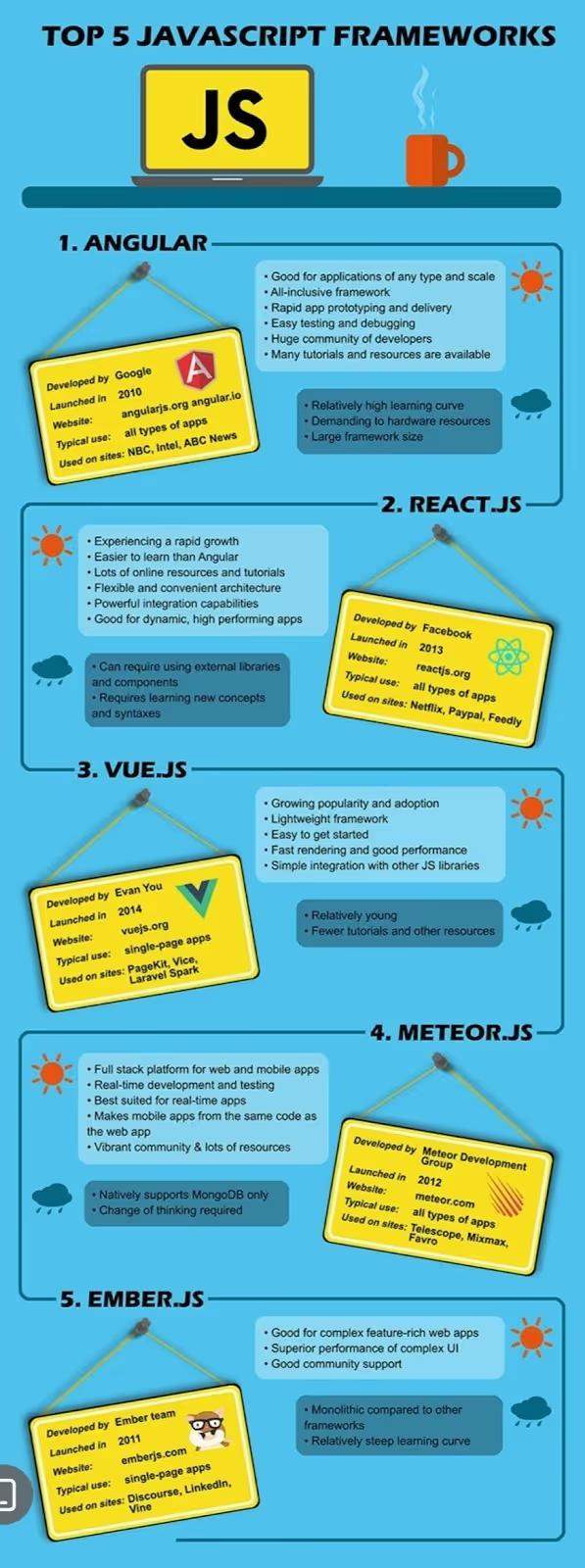Empower your recruitment strategy in 2024 with expert tips on hiring JavaScript developers. From skill requirements to collaboration tools, master the essentials for success in the journey to hire Javascript developers!


For almost everyday projects and for almost every other business, JavaScript has now become a critical and necessary development program. JavaScript stands as a keystone in modern web development, driving interactivity and responsiveness across countless digital platforms. In this informative guide, we'll navigate the difficulties of hiring JavaScript software development experts in 2024. From observing the core principles of JavaScript to crafting effective strategies for sourcing and evaluating talent, our aim is to arm businesses and organizations with the insights necessary to overcome the hassle of the competitive hiring landscape successfully.
JavaScript serves as the backbone of web applications, empowering developers to create captivating user experiences and responsive interfaces. Unlike server-side languages such as PHP, JavaScript operates primarily on the client side, executing code within users' browsers to manipulate page elements and handle user interactions in real time. Its versatility extends beyond front-end development, as JavaScript frameworks like Node.js enable server-side scripting, assisting in the development of full-stack applications.
JavaScript was born in 1995, created by Brendan Eich during his time at Netscape. What’s wild is that he built the first version in just 10 days. It started as a simple scripting language called Mocha, then got renamed to LiveScript, and finally landed on JavaScript (mainly for marketing reasons, to ride on Java’s popularity). Over time, it grew from a tool for basic browser interactivity to one of the most powerful languages powering full-scale web apps. Thanks to constant updates, the rise of frameworks, and engines like V8, JavaScript has become the heart of modern web development.
》 Lightweight and Fast: JavaScript runs directly in the browser without the need for compilation. It’s quick to load and quick to execute, perfect for interactive user experiences.
》 Client-Side Execution: It operates on the user's device, not the server. This means faster performance for UI interactions and less server strain.
》 Asynchronous and Event-Driven: JavaScript handles events like clicks and keypresses with ease. Thanks to features like async/await and Promises, it doesn’t freeze the browser while waiting for tasks to finish.
》 Cross-Browser Compatibility: All major browsers support JavaScript. With a little attention to detail, your code can work smoothly across Chrome, Safari, Firefox, and others.
》 Dynamic Typing: You don’t need to define data types explicitly. JavaScript figures them out while the code is running, giving you more flexibility and faster development.
》 First-Class Functions: Functions can be stored in variables, passed as arguments, or returned from other functions, just like any other value.
》 Prototypal Inheritance: Instead of rigid class structures, JavaScript uses a more flexible object-based inheritance model. Objects can inherit properties directly from other objects.
》 Rich Built-in Objects: You get helpful tools and built-in data types to simplify complex tasks without needing external libraries.
》 DOM Manipulation: JavaScript can interact with the Document Object Model, letting you change text, styles, and HTML structure on the fly.
》 Massive Ecosystem: With libraries like React, Angular, and tools like Node.js, JavaScript supports everything from frontend animations to full-stack web apps.

To work on JavaScript developers jobs, developers must possess a huge variety of skill sets to navigate the complexities of modern web development effectively. Proficiency in JavaScript fundamentals, including variable declaration, data types, and control structures, forms the base of a developer's expertise. Beyond the basics, familiarity with JavaScript frameworks and libraries, such as React, Angular, and Vue.js, is essential for building scalable and maintainable applications. Additionally, a solid understanding of front-end technologies like HTML, CSS, and DOM manipulation is vital for crafting engaging user interfaces and optimizing web performance.
In today's interconnected digital ecosystem, JavaScript developers often find themselves bridging the gap between front-end and back-end technologies. Mastery of back-end frameworks like Express.js, coupled with proficiency in database management systems like MongoDB and SQL, enables developers to build seamless full-stack applications. Understanding RESTful API design principles and authentication mechanisms is paramount for facilitating secure data exchange between client and server components.
Effective collaboration lies at the heart of successful software development endeavors. JavaScript developers leverage version control systems like Git and collaborative platforms such as GitHub to streamline code management, track changes, and facilitate seamless collaboration within development teams. These tools not only enhance productivity but also foster a culture of transparency and accountability among team members.
As with any programming discipline, proficient problem-solving and debugging skills are indispensable for JavaScript developers' jobs. The ability to diagnose and rectify software defects efficiently, utilizing browser developer tools, debugging utilities, and logging mechanisms, is crucial for maintaining code quality and delivering robust applications. Moreover, a proactive approach to performance optimization ensures that applications remain responsive and scalable, even under heavy user load.
In an era plagued by cybersecurity threats, adhering to stringent security best practices is non-negotiable for JavaScript developers. Awareness of common vulnerabilities, such as cross-site scripting (XSS) and injection attacks, equips developers with the knowledge necessary to fortify applications against potential exploits. Implementing security measures like input validation, data sanitization, and encryption safeguards sensitive data and mitigates the risk of unauthorized access.
The landscape of web development is in a perpetual state of flux, characterized by rapid technological advancements and evolving best practices. JavaScript developers must exhibit a relentless commitment to continuous learning and adaptability, staying abreast of emerging frameworks, tools, and methodologies. Engaging with online tutorials, attending industry conferences, and participating in open-source projects cultivates a culture of innovation and ensures that developers remain at the forefront of technological innovation.
In a competitive hiring landscape, identifying and attracting top-tier JavaScript talent requires a multifaceted approach. Leveraging online platforms and developer communities, such as LinkedIn, GitHub, and Stack Overflow, facilitates connections with seasoned professionals and provides valuable insights into candidates' expertise and experience. Actively participating in industry events, conferences, and meetups fosters networking opportunities and exposes hiring managers to a diverse pool of talent.
JavaScript developers must possess a deep understanding of JavaScript syntax, data types, and control flow. Mastery of core concepts like closures, prototypes, and asynchronous programming is crucial for developing efficient and maintainable codebases.
Familiarity with popular JavaScript frameworks and libraries such as React, Angular, Vue.js, and Node.js is essential. These tools provide developers with pre-built components and state management solutions that streamline development and enhance scalability.
A solid grasp of front-end technologies, including HTML, CSS, and DOM manipulation, is fundamental for crafting engaging user interfaces and optimizing web performance. Proficiency in responsive design and cross-browser compatibility ensures a seamless user experience across diverse platforms.
JavaScript developers often work with back-end technologies like Express.js, MongoDB, and SQL databases to build full-stack applications. Understanding RESTful API design principles and authentication mechanisms is critical for facilitating secure data exchange between client and server components.
Proficiency in version control systems like Git and collaboration platforms such as GitHub is indispensable for effective code management and team collaboration. These tools enable developers to track changes, manage branches, and coordinate workflow seamlessly within distributed teams.
Strong problem-solving and debugging skills are essential for identifying and rectifying software defects efficiently. JavaScript developers should be proficient in using browser developer tools, debugging utilities, and logging mechanisms to maintain code quality and optimize performance.
Awareness of common security vulnerabilities such as cross-site scripting (XSS) and injection attacks is crucial for building secure web applications. Implementing security measures like input validation, data sanitization, and encryption helps mitigate risks and safeguard sensitive data.
Given the rapidly changing nature of web development, JavaScript developers must demonstrate a commitment to continuous learning and adaptability. Staying abreast of emerging frameworks, tools, and best practices enables developers to innovate and deliver cutting-edge solutions effectively.
Effective communication and teamwork are paramount for fostering collaborative environments and driving project success. JavaScript developers should possess strong interpersonal skills, including active listening, empathy, and the ability to articulate complex technical concepts to diverse stakeholders.
Optimizing web performance is crucial for delivering responsive and scalable applications. JavaScript Software Development experts should employ techniques such as code minification, image optimization, and caching to reduce load times and enhance user experience across devices and network conditions.
At Blue Coding, we prioritize seamless communication and collaboration, leveraging our team's fluency in English and experience working in distributed environments. Our commitment to excellence extends beyond technical proficiency, having a dedication to client satisfaction and project success. That’s why we encourage you to partner with us today to hire remote developers and augment your development team with seasoned JavaScript developers to begin your journey of innovation and growth in 2024 and beyond. To learn more about our services and have a free discovery/strategy call with us, contact us now and tell us about your project!
Subscribe to our blog and get the latest articles, insights, and industry updates delivered straight to your inbox